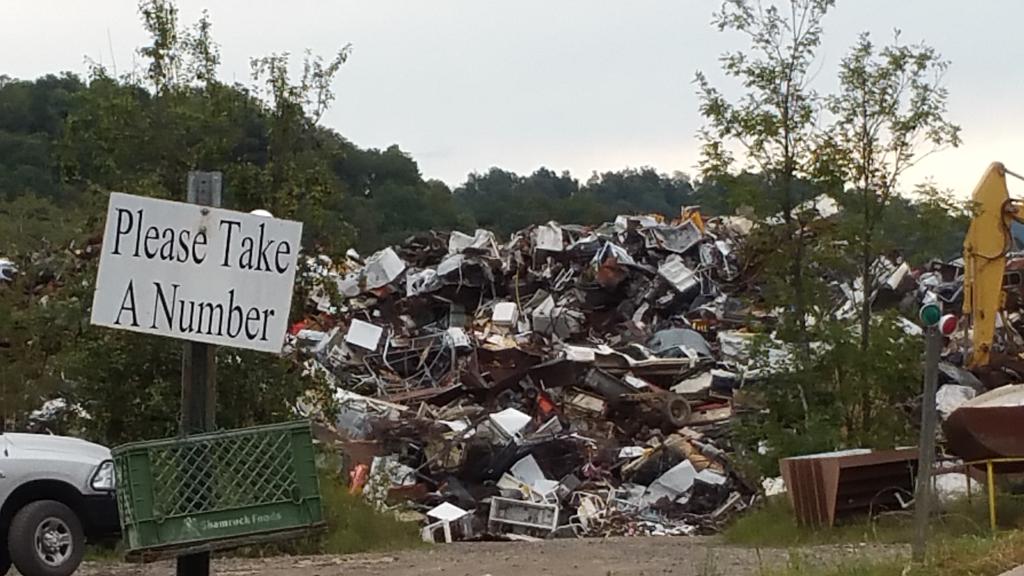Over the past decade, the Wealthy Nation West (WNW) suffered under the heavy load of conscience-grubbing photos by Pieter Hugo combined with "fun anti-facts" by Basel Action Network and Greenpeace. The bright regulators in Europe and PACE, Interpol, StEP and Secretariat of the Basel Convention were busy at work, designing tests and enforcement procedures to protect African consumers from the wicked or accidental fallout from Africa Tech Sector Importers like Joe "Hurricane" Benson.
The tests were difficult, a thankless task for scores of customs agents who struggled to program their VCR machines in the 90s, and who probably paid for Windows 8 upgrades and have 2 smartphones and 3 flip phones in their dresser. The diagrams drawn by Europeans showed used PCs heading down a pipeline of decisions, like a stool down a chamber of drains. The generator was the "actor", a fetish of guilt and liability attached to the used electronic "waste" device.
WNW could have saved a lot of money on sewers if Africans were at all motivated to come to America and Europe and pay to ship our feces and urine to unregulated rivers. But of course, why would an African do that?
Interpol, UNEP, and others repeated ad nauseum the fake fact that TVs and monitors had lots of gold and were worth lots of money when banged apart by kids with hammers. That millions of dollars were spent, and Hurricane Joe Benson imprisoned, based on the malarky that avoided disposal cost was an ATM for Africans is shocking because anyone who spent 15 minutes taking apart a display device and weighing the copper on a bathroom scale could tell you it was nonsense.
They counted the number of TVs in Joe Benson's containers, but they never employed the math to show that the value of the copper never paid for the shipment of the container, only the reuse did. But far be it from Europe to take economics and African judgement into consideration.
The used electronics resembled waste, and anything downstream from Europe was to be mopped up.
As it turns out, "it's not about you".


The tests were difficult, a thankless task for scores of customs agents who struggled to program their VCR machines in the 90s, and who probably paid for Windows 8 upgrades and have 2 smartphones and 3 flip phones in their dresser. The diagrams drawn by Europeans showed used PCs heading down a pipeline of decisions, like a stool down a chamber of drains. The generator was the "actor", a fetish of guilt and liability attached to the used electronic "waste" device.
WNW could have saved a lot of money on sewers if Africans were at all motivated to come to America and Europe and pay to ship our feces and urine to unregulated rivers. But of course, why would an African do that?
Interpol, UNEP, and others repeated ad nauseum the fake fact that TVs and monitors had lots of gold and were worth lots of money when banged apart by kids with hammers. That millions of dollars were spent, and Hurricane Joe Benson imprisoned, based on the malarky that avoided disposal cost was an ATM for Africans is shocking because anyone who spent 15 minutes taking apart a display device and weighing the copper on a bathroom scale could tell you it was nonsense.
They counted the number of TVs in Joe Benson's containers, but they never employed the math to show that the value of the copper never paid for the shipment of the container, only the reuse did. But far be it from Europe to take economics and African judgement into consideration.
The used electronics resembled waste, and anything downstream from Europe was to be mopped up.
As it turns out, "it's not about you".





